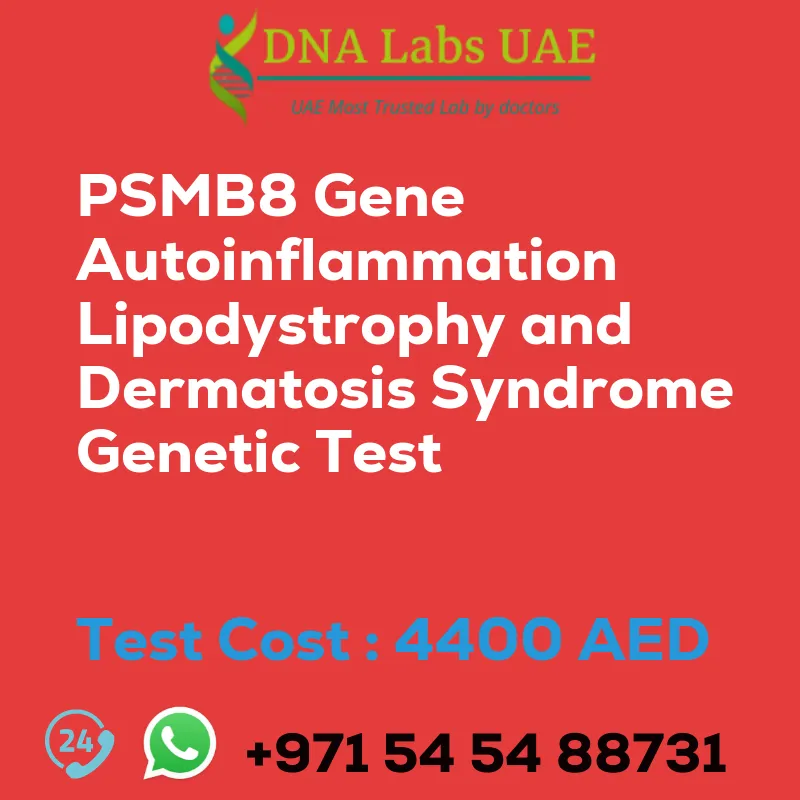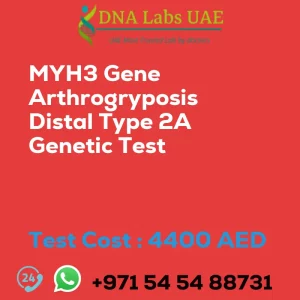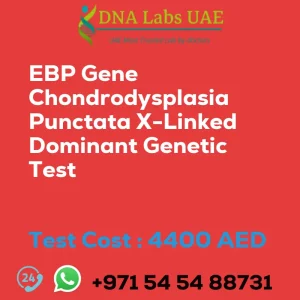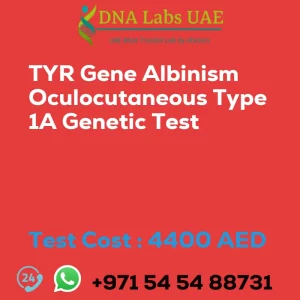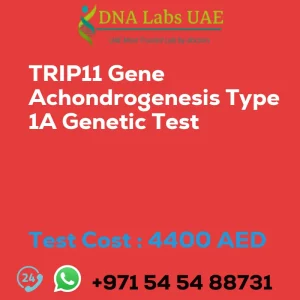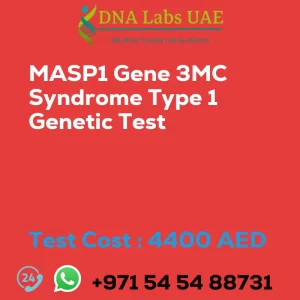PSMB8 Gene Autoinflammation Lipodystrophy and Dermatosis Syndrome Genetic Test
Genetic testing is an important tool in diagnosing and understanding various genetic disorders. One such disorder is PSMB8 gene autoinflammation, lipodystrophy, and dermatosis syndrome (PALS). This rare autosomal recessive disorder is characterized by symptoms such as recurrent fevers, joint pain, muscle weakness, skin abnormalities, and abnormal distribution of body fat.
Test Details
The PSMB8 gene is responsible for encoding a protein called proteasome subunit beta type-8. Mutations in this gene have been associated with PALS. To diagnose this condition, a PSMB8 Gene Autoinflammation Lipodystrophy and Dermatosis Syndrome Genetic Test can be conducted.
Components
- Test Name: PSMB8 Gene Autoinflammation Lipodystrophy and Dermatosis Syndrome Genetic Test
- Price: 4400.0 AED
- Sample Condition: Blood or Extracted DNA or One drop Blood on FTA Card
- Report Delivery: 3 to 4 Weeks
- Method: NGS Technology
- Test Type: Osteology Dermatology Immunology Disorders
- Doctor: Dermatologist
- Test Department: Genetics
Pre Test Information
Before undergoing the PSMB8 Gene Autoinflammation Lipodystrophy and Dermatosis Syndrome Genetic Test, it is important to provide the clinical history of the patient. Additionally, a genetic counseling session may be conducted to draw a pedigree chart of family members affected by PALS.
Test Process
The test involves collecting a DNA sample, usually through a blood sample, from the individual being tested. Next-Generation Sequencing (NGS) technology is then used to analyze the DNA sample and identify any variations or mutations in the PSMB8 gene. The results of the test can confirm a diagnosis of PALS and provide information about the specific mutation(s) present.
Implications and Genetic Counseling
Interpreting NGS results can be complex and should be done by healthcare professionals with expertise in genetics. Therefore, genetic counseling is often recommended before and after genetic testing to ensure a clear understanding of the results and their implications. The information obtained from the test can be useful for genetic counseling and family planning.
It is important to note that NGS genetic testing may not be available in all healthcare settings and may require specialized laboratories or genetic testing facilities.
| Test Name | PSMB8 Gene Autoinflammation lipodystroph and dermatosis syndrome Genetic Test |
|---|---|
| Components | |
| Price | 4400.0 AED |
| Sample Condition | Blood or Extracted DNA or One drop Blood on FTA Card |
| Report Delivery | 3 to 4 Weeks |
| Method | NGS Technology |
| Test type | Osteology Dermatology Immunology Disorders |
| Doctor | Dermatologist |
| Test Department: | Genetics |
| Pre Test Information | Clinical History of Patient who is going for PSMB8 Gene Autoinflammation, lipodystroph and dermatosis syndrome NGS Genetic DNA Test. A Genetic Counselling session to draw a pedigree chart of family members affected with PSMB8 Gene Autoinflammation, lipodystroph and dermatosis syndrome NGS Genetic DNA Test gene PSMB8 |
| Test Details |
The PSMB8 gene is responsible for encoding a protein called proteasome subunit beta type-8. Mutations in this gene have been associated with a rare autosomal recessive disorder known as PSMB8 gene autoinflammation, lipodystrophy, and dermatosis syndrome (PALS). PALS is characterized by a variety of symptoms including recurrent fevers, joint pain, muscle weakness, skin abnormalities (such as psoriasis or panniculitis), and lipodystrophy (abnormal distribution of body fat). It is considered an autoinflammatory disorder, meaning it is caused by an abnormal immune response leading to inflammation in various parts of the body. NGS (Next-Generation Sequencing) genetic testing is a method used to analyze multiple genes simultaneously to identify genetic mutations or variations that may be associated with a particular condition or disorder. In the case of PSMB8 gene autoinflammation, lipodystrophy, and dermatosis syndrome, NGS genetic testing can be used to identify mutations in the PSMB8 gene. This type of genetic testing involves collecting a DNA sample (usually through a blood sample) from the individual being tested. The DNA is then sequenced using NGS technology to identify any variations or mutations in the PSMB8 gene. These results can help confirm a diagnosis of PALS and can also provide information about the specific mutation(s) present, which can be useful for genetic counseling and family planning. It is important to note that NGS genetic testing may not be available in all healthcare settings and may require specialized laboratories or genetic testing facilities. Additionally, the interpretation of NGS results can be complex and should be done by healthcare professionals with expertise in genetics. Genetic counseling is often recommended before and after genetic testing to ensure a clear understanding of the results and their implications. |

